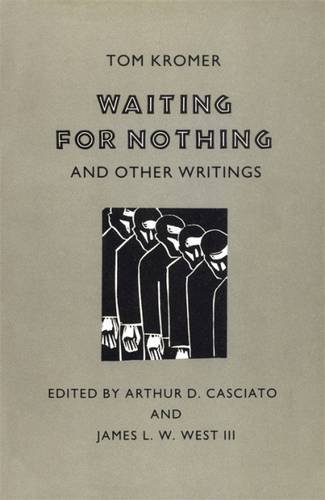

Most ebook files are in PDF format, so you can easily read them using various software such as Foxit Reader or directly on the Google Chrome browser.
Some ebook files are released by publishers in other formats such as .awz, .mobi, .epub, .fb2, etc. You may need to install specific software to read these formats on mobile/PC, such as Calibre.
Please read the tutorial at this link: https://ebookbell.com/faq
We offer FREE conversion to the popular formats you request; however, this may take some time. Therefore, right after payment, please email us, and we will try to provide the service as quickly as possible.
For some exceptional file formats or broken links (if any), please refrain from opening any disputes. Instead, email us first, and we will try to assist within a maximum of 6 hours.
EbookBell Team

5.0
40 reviewsIn "Waiting for Nothing" and Other Writings, the works of the depression-era writer Tom Kromer are collected for the first time into a volume that depicts with searing realism life on the bum in the 1930s and, with greater detachment, the powerless frustration of working-class people often too locked in to know their predicament.Waiting for Nothing, Kromer's only completed novel, is largely autobiographical and was written at a Civilian Conservation Corps camp in California. It tells the story of one man drifting through America, east coast to west, main stem to side street, endlessly searching for "three hots and a flop"―food and a place to sleep. Kromer scans, in first-person voice, the scattered events, the stultifying sameness, of "life on the vag"―the encounters with cops, the window panes that separate hunger and a "feed," the bartering with prostitutes and homosexuals.
In "Michael Kohler," Kromer's unfinished novel, the harsh existence of coal miners in Pennsylvania is told in a committed, political voice that reveals Kromer's developing affinity with leftist writers including Lincoln Steffens and Theodore Dreiser. An exploration of Kromer's proletarian roots, "Michael Kohler" was to be a political novel, a story of labor unions and the injustices of big management. Kromer's other work ranges from his college days, when he wrote a sarcastic expose of the bums in his hometown titled "Pity the Poor Panhandler: $2 an Hour Is All He Gets," to the sensitive pieces of his later life―short stories, articles, and book reviews written more out of an aching understanding of suffering than from the slick formulas of politics.
Waiting for Nothing remains, however, Kromer's most powerful achievement, a work Steffens called "realism to the nth degree." Collected here as the major part of Kromer's oeuvre, Waiting for Nothing traces the author's personal struggle to preserve human virtues and emotions in the face of a brutal and dehumanizing society.